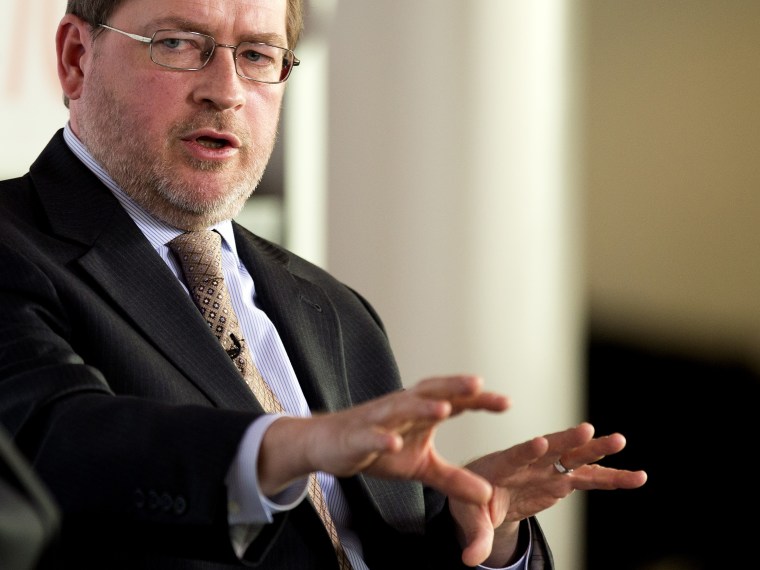Several years ago, Grover Norquist and Americans for Tax Reform came up with a clever tactic that came to be known as "the pledge." Republican candidates, up and down the ballot, were asked to sign a promise never to support raising any tax on anyone by any amount for any reason.
In time, the pressure on GOP candidates took root -- Republicans who expected to win, especially in a primary, understood that there's now an expectation within the party. Sign the pledge or lose.
The more popular the tactic became, the more bipartisan policymaking became practically impossible, especially at the federal level. It wasn't long before Norquist's pledge developed a reputation as a mindless, knee-jerk obstacle to good governance.
But at the national level, Republicans keep signing it.
Sen. Marco Rubio of Florida has signed Americans for Tax Reform's Taxpayer Protection Pledge to oppose any efforts to raise taxes if elected president, the group said Tuesday. Grover Norquist, president of ATR, pointed out that Mr. Rubio signed and kept the pledge as a state representative in Florida and in his capacity as a United States Senator.
So far, only three Republicans have officially kicked off their presidential campaigns: Rubio, Ted Cruz, and Rand Paul. As of yesterday, each of them has signed the pledge.
They probably won't be the last: as the Washington Times' report noted, Scott Walker, Bobby Jindal, Rick Perry, and Mike Huckabee "have all previously signed the pledge in some capacity," and are expected to do so again this year.
The brazen pandering, of course, matters, especially when it comes to Rubio -- the far-right Floridian keeps presenting himself as a new, forward-thinking Republican, willing to take a fresh look at partisan orthodoxy, but he keeps acting like an old, backward-thinking Republican, eager to stick to the same stale positions GOP partisans have embraced for years.
But just below the surface, there's actually more to this.
First, Rubio's policy posture is likely to get a little tricky. By signing the Norquist pledge, the senator is vowing not to raise taxes on anyone, but his tax plan specifically raises taxes, both on millions of middle-class households, and also on the poor in the form of lost tax credits.
Rubio's tax plan is controversial for all sorts of reasons -- it's deeply at odds with arithmetic, for example -- but its conflict with the pledge the senator just signed is going to require some explanation.
Second, it's interesting to see Rubio, Paul, and Cruz rally behind Norquist's gimmick at a time when much of the party seemed to be moving in the opposite direction. As recently as 2012, Lindsey Graham and others began publicly criticizing the pledge as unconstructive. House Speaker John Boehner suggested he's not crazy about it, either.
Jeb Bush boasted, "I ran for office three times. The pledge was presented to me three times. I never signed the pledge. I cut taxes every year I was governor. I don't believe you outsource your principles and convictions to people. I respect Grover's political involvement. He has it every right to do it, but I never signed any pledge."
There was growing talk that Norquist's pledge was an unhelpful obstacle that responsible policymakers knew to ignore. Three years ago, when Norquist organized a meeting with congressional Republicans, demanding they respect his authority, "at most 20 members" showed up.
But in 2015, there's some evidence the pledge is making a comeback. Much of the GOP apparently can't help itself.
